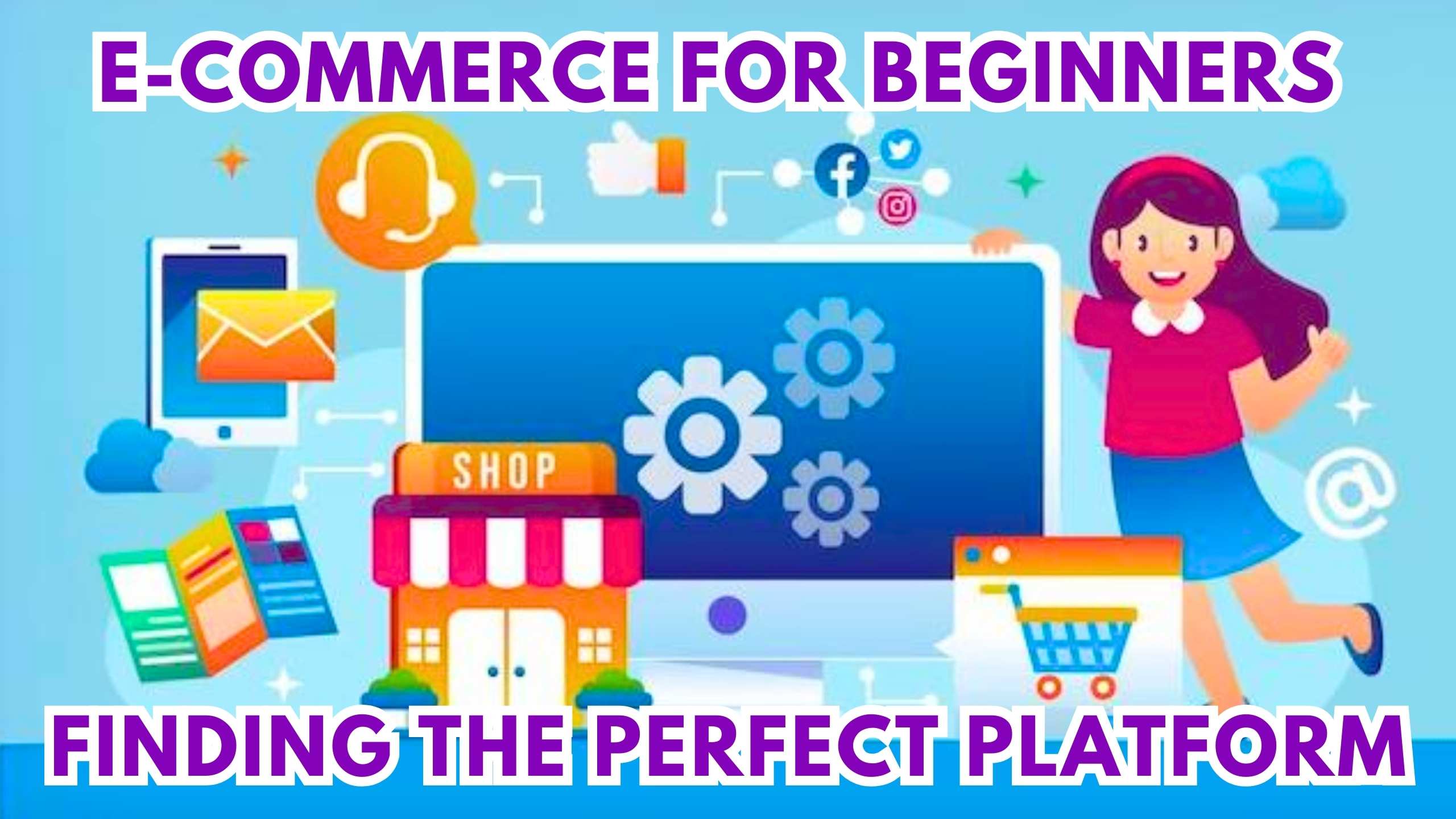E-commerce for Beginners: Finding the Perfect Platform


E-commerce for Beginners: Finding the Perfect Platform
Embarking on the e-commerce journey as a beginner is both exciting and overwhelming. Selecting the right e-commerce platform is crucial for success. This blog aims to guide beginners through the process of finding the perfect platform, delving into key considerations and recommending top Software as a Service (SaaS) products.
Understanding Your Business Needs
Before diving into the plethora of e-commerce platforms available, it’s essential to understand your business needs. Consider factors such as the scale of your operations, types of products, and your budget. Each e-commerce platform caters to different business models, so aligning your needs with the platform’s capabilities is a critical first step.
1. Shopify: Simplicity for Starters
Shopify is renowned for its user-friendly interface and simplicity. Ideal for beginners, Shopify offers a wide range of customizable templates and features, allowing businesses to set up an online store quickly. The platform’s robust inventory management and secure payment options make it a go-to choice for those starting in the e-commerce realm.
2. WooCommerce: Integrating with WordPress
For businesses already utilizing WordPress, WooCommerce seamlessly integrates with the platform. It provides a customizable and open-source solution, making it suitable for businesses with specific design and functionality requirements. As a beginner-friendly option, WooCommerce offers a gentle learning curve for those familiar with WordPress.
3. BigCommerce: Scalability and Growth
BigCommerce positions itself as an e-commerce platform suitable for growth. With built-in features for SEO optimization and responsive templates, beginners can create a professional-looking online store. BigCommerce’s scalability ensures that as your business expands, the platform can accommodate increased product listings and customer traffic.
4. Wix eCommerce: Drag-and-Drop Simplicity
Wix eCommerce combines website-building simplicity with e-commerce functionality. With its intuitive drag-and-drop editor, beginners can design visually appealing online stores. Wix offers various templates and allows for customization without the need for coding skills, making it an excellent choice for those who prioritize design flexibility.
5. Squarespace: Aesthetic E-commerce
Squarespace caters to businesses that prioritize aesthetics. Known for its visually appealing templates, Squarespace simplifies the process of creating a beautiful online store. It’s an excellent choice for creative entrepreneurs and small businesses looking to make a strong visual impact.
Conclusion: Your E-commerce Journey Begins
In conclusion, finding the perfect e-commerce platform as a beginner is an important first step towards online success. Consider your business needs, scalability, and the level of customization required. Whether you opt for Shopify’s simplicity, WooCommerce’s integration, BigCommerce’s scalability, Wix’s design flexibility, or Squarespace’s aesthetic appeal, each platform offers unique advantages for budding entrepreneurs.
Start Your E-commerce Journey with Subscribed.fyi
Ready to optimize your e-commerce experience? Unlock exclusive deals, streamline subscription management, and gain insights with Subscribed.fyi. Sign up for free today and take control of your SaaS tools, making informed decisions for your e-commerce venture.
Relevant Links:








